As a business owner in the hospitality industry, you know that protecting your investment is critical. But do you understand the essential insurance coverage you need to safeguard your operations? From general liability to specialized policies like food spoilage insurance, the right choices can prevent significant financial losses. It’s not just about compliance; it’s about ensuring your business can weather unexpected challenges. What aspects of your current coverage might be leaving you vulnerable, and how can you address them effectively?
Types of Hospitality Insurance
When running a hospitality business, it’s crucial to understand the various types of insurance that can help safeguard your operations. Each type serves a specific purpose, ensuring you’re covered in different scenarios.
First, consider property insurance, which protects your physical assets like buildings, equipment, and inventory from damages due to fire, theft, or natural disasters. This coverage is essential for maintaining your business’s financial stability.
Next, business interruption insurance can keep you afloat if unexpected events force you to close temporarily. This coverage helps replace lost income during downtime.
Another key type is workers’ compensation insurance. If an employee gets injured on the job, this insurance covers medical expenses and lost wages, protecting both you and your staff.
You might also want to look into product liability insurance, especially if you serve food or beverages. It shields you from claims arising from injuries caused by your products.
Lastly, consider commercial auto insurance if you operate vehicles for business purposes. This coverage protects against accidents and damages, ensuring your transportation is secure.
Understanding these types of hospitality insurance is vital for making informed decisions hospitality insurance securing your business’s future.
General Liability Coverage
General liability coverage is a fundamental aspect of hospitality insurance that every business owner should prioritize. This type of insurance protects you against claims of bodily injury, property damage, and personal injury that may occur on your premises.
When a guest slips and falls or a vendor’s equipment gets damaged, you could face significant legal expenses without this coverage.
It’s crucial to understand that general liability doesn’t just cover accidents; it also includes protection from claims of libel, slander, and false advertising. If someone accuses your establishment of damaging their reputation, this coverage can help defend your business.
When selecting a policy, pay attention to the coverage limits. Ensure they align with your business’s needs, as higher limits can safeguard against larger claims.
You should also consider additional endorsements for specific risks unique to your hospitality business.
Property Insurance Essentials
Property insurance is crucial for protecting your hospitality business against a variety of risks, from fire and theft to natural disasters. It covers the physical assets of your establishment, including the building, furniture, equipment, and inventory. Without adequate property insurance, you’re risking significant financial loss that could jeopardize your operations.
When choosing a policy, consider the specific needs of your business. Make sure to assess the value of your assets accurately; underestimating their worth could lead to insufficient coverage. Look for policies that cover both named perils—specific events like fire or vandalism—and all-risk policies that offer broader protection.
Additionally, pay attention to the details, such as deductibles and coverage limits. Higher deductibles can lower your premium but may leave you exposed in a large claim situation. It’s also wise to review your policy annually to adjust for any changes in your property value or business operations.
Lastly, don’t forget to inquire about additional coverage options, like business interruption insurance, which can help cover lost income during repairs. Being proactive in securing property insurance can make all the difference in your business’s long-term success.
Workers’ Compensation Requirements
Ensuring your hospitality business meets workers’ compensation requirements is essential for protecting both your employees and your bottom line.
Workers’ compensation insurance covers medical expenses and lost wages for employees injured on the job. Without it, you risk facing hefty fines and potential lawsuits, which can significantly impact your finances.
Here are four key points to consider regarding workers’ compensation requirements:
- State Regulations: Each state has different laws governing workers’ compensation. Check your local regulations to ensure compliance.
- Employee Classification: Understand which employees are eligible for coverage. This typically includes full-time and part-time workers, but not independent contractors.
- Coverage Limits: Determine the minimum required coverage in your state, but consider opting for higher limits to better protect your business.
- Reporting Injuries: Establish a clear protocol for reporting injuries. Prompt reporting can facilitate quicker claims processing and help maintain a safe work environment.
Specialized Coverage Options
Navigating the complex landscape of hospitality insurance means considering specialized coverage options tailored to your unique needs. As a business owner, you might encounter specific risks that standard policies don’t fully address. That’s where specialized coverage comes into play.
For instance, if you run a restaurant, consider food spoilage insurance. This coverage protects you against losses due to power outages or equipment failures that spoil your inventory.
If you’re in the lodging industry, think about coverage for damage caused by guests, which can help mitigate the financial impact of property destruction.
Another valuable option is business interruption insurance. This can cover loss of income during unforeseen shutdowns, ensuring you stay afloat while you recover.
You might also want to look into cyber liability insurance, especially if you handle customer data online. This protects against data breaches and related legal costs.
Conclusion
In conclusion, securing the right hospitality insurance coverage is vital for your business’s success. By understanding general liability, property insurance, and workers’ compensation, you can protect your investments and employees effectively. Don’t overlook specialized options like food spoilage and cyber liability, as they address unique risks in the industry. Regularly reviewing your policies ensures compliance and safeguards against financial losses, helping you maintain a thriving operation. Your peace of mind starts with the right coverage—invest in it today!


